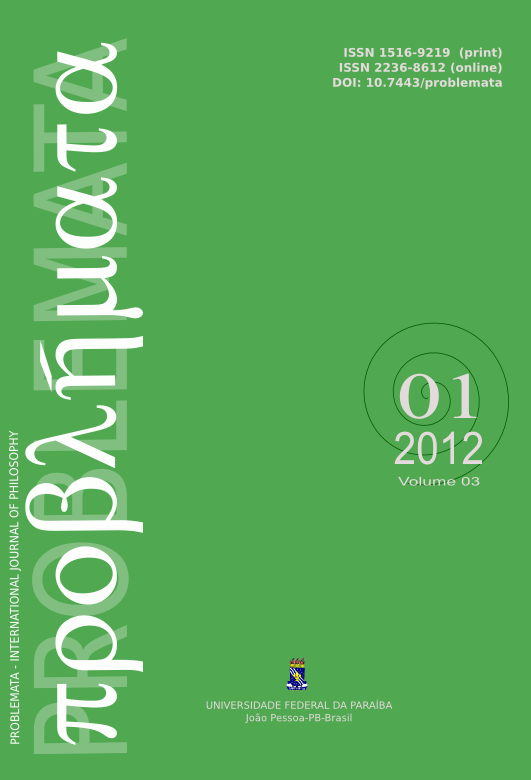A DEPOLITICIZATION OF PUBLIC SPHERE IN JÜRGEN HABERMAS UNDER A SOCIOPOLITICAL PERSPECTIVE<a href="http://dx.doi.org/10.7443/problemata.v3i1.12657"><i> <b>[doi: 10.7443/problemata.v3i1.12657]</b></i></a>
DOI:
https://doi.org/10.7443/problemata.v3i1.12657Keywords:
Jürgen Habermas, Esfera Pública, Política, Legitimação, IdeologiaAbstract
The paper provides an analysis of a fundamental theme explored by Jürgen Habermas – The depoliticization of the public sphere - in a sociopolitical perspective. For this bias, the depoliticization is characterized by functional and structural change and consequent disintegration of the public sphere, by the abandoning the idea of neutralizing the domination and rationalize the power through the medium of the public sphere. This problem is examined in the context of structural and functional transformation of the public sphere: the sociohistorical process by which the bourgeois public sphere, originally established in civil society is gradually undermined by the economic pressures of the capitalist system and the growing influence of the mass-media. In this structural and functional change, Habermas already indicates the eclipse of the public sphere as a political institution and the consequent depoliticization of society. This depoliticization reveals the negative character of politics in advanced capitalist societies, excluding of public communication inconvenient topics for the system power and that could, justly, lead individuals to promote the opening of problematic speeches and thus the proposal that protects the general and public interests and to guide an emancipatory praxis, based on a model of rational critic public sphere. The text is divided into three parts: the structural and functional transformation of the public sphere, which emphasizes the growing state interventionism in the economic base of society (1); the critique of the ideological nature of the technique, which attempts to uncover the relationship between instrumental reason and technocratic domination and its consequences in a political practice (2); and the analysis of legitimation problems in advanced capitalism, of the modern forms of legitimation of technocratic variant (3).Keywords: Jürgen Habermas, Public Sphere, Politics, Legitimation, Ideology.
Downloads
Download data is not yet available.
Downloads
Published
2012-05-29
Issue
Section
Papers
License
Authors who publish with this journal agree to the following terms:
- Authors retain copyright and grant the journal right of first publication with the work simultaneously licensed under a Creative Commons Attribution License that allows others to share the work with an acknowledgement of the work's authorship and initial publication in this journal.
- Authors are able to enter into separate, additional contractual arrangements for the non-exclusive distribution of the journal's published version of the work (e.g., post it to an institutional repository or publish it in a book), with an acknowledgement of its initial publication in this journal.
-
- Authors are permitted and encouraged to post their work online (e.g., in institutional repositories or on their website) prior to and during the submission process, as it can lead to productive exchanges, as well as earlier and greater citation of published work (See The Effect of Open Access).





